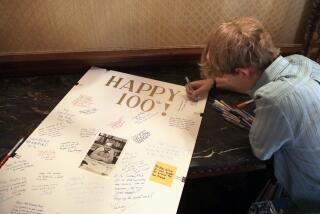The Scientist and the Crusader
If Linus C. Pauling had never existed, it is possible that it would have been inconceivable that there could ever be anyone like him. He was a unique and controversial figure, not only to colleagues in whom he inspired the greatest respect and to professional rivals in whom he triggered complex emotions, but also to Americaâs serious and dedicated chemistry students, who understood him as a great chemist, a great political crusader and inspiration. If America itself is sometimes thought of as a nation and society that is larger than life and unique to history, then perhaps this extraordinary scientist in some respects was a quintessential American legend.
As a chemist he made staggering contributions. His 1939 book âThe Nature of the Chemical Bondâ was regarded as a landmark in the history of science and his work on the molecular structure eventually led to his receiving the Nobel Prize for chemistry, in 1954.
As a citizen of the world concerned about the terrible power of nuclear weapons, he was no less the towering figure. An outspoken critic of the spread of nuclear weapons, by the 1950s he was a most prominent proponent of the view that nuclear weapons should never even be tested. He crusaded tirelessly for that view and was rewarded, not only in 1962, when he won his second Nobel Prize (this one not for his contributions to chemistry but to world peace), but also in 1963, when the worldâs major nuclear nations inked the international test ban treaty.
Paulingâs passionate and at times extreme views were filled with a surpassing certitude that sometimes inspired emotions considerably the opposite of love and affection. In the politically tendentious atmosphere of the McCarthy era his anti-nuclear crusade made him a convenient figure for attack by anti-communists; and his highly original advocacy of massive dosages of Vitamin C for an astonishing variety of ailments and diseases struck many scientific colleagues as speculative at the most charitable.
Even so, whether tilting at nuclear arsenals or the common cold, Pauling was undoubtedly a national treasure. His years at Caltech were the most thrilling and productive of his long and brilliant career. On Friday Pauling, 93, died. He spent his last years at his beloved ranch near Big Sur in Central California, but for his many admirers here he will alway be thought of as a Southern Californian treasure.




